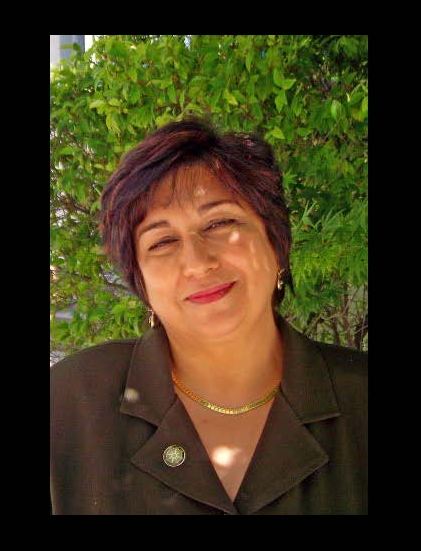(New York, November 9, 2009) – Four Iranians are among 37 writers from 18
countries who are receiving the prestigious Hellman/Hammett award, Human
Rights Watch said today.
The award recognizes their commitment to free expression and the courage
with which they have faced political persecution.
Iranian authorities have suppressed the work of these writers and
journalists, and have targeted them with arbitrary arrests and false
charges. Mohammad Sadiq Kaboudvand, one of this year’s recipients, has
been in prison since his arrest in 2007. The three others who received
awards are Asieh Amini, Yusuf Azizi Banitorof, and Arash Sigarchi.
Human Rights Watch administers the Hellman/Hammett grants and chooses
grantees annually from writers around the world who have been targets of
political persecution. The grant program began in 1989 when the American
playwright Lillian Hellman willed that her estate be used to assist
writers in financial need as a result of expressing dissenting views.
“The Hellman/Hammett grants aim to help writers who dare to express ideas
that criticize official public policy or people in power” said Marcia
Allina, Hellman/Hammett program coordinator at Human Rights Watch.
Ms. Hellman was prompted by the persecution that she and her longtime
companion, the novelist Dashiell Hammett, experienced during
anti-communist hysteria in the US during the 1950s when they both were
questioned by US congressional committees about their political beliefs
and affiliations. Hellman suffered professionally and had trouble finding
work. Hammett spent time in prison.
Over the past 20 years, more than 600 writers from 91 countries have
received Hellman/Hammett grants.
Short biographies of the Iranian recipients follow.
Asieh Amini, poet, journalist, and women’s rights activist, is one of
Iran’s most effective campaigners against the death penalty, particularly
stoning and juvenile executions. Amini is a leading voice for educating
the public about human rights issues. She is credited with saving the
lives of several juveniles and women on death row by publicizing their
cases, campaigning with the authorities, and persuading families of
victims to forgo their right to retribution. In March 2007, Amini was
arrested while participating in a peaceful protest. She was charged with
illegal collusion intended to disrupt national security and public order
and detained in Evin Prison for five days. After several interrogations,
the court acquitted her for lack of evidence.
Yusuf Azizi Banitorof, novelist, translator, journalist, and human rights
activist, is the author of 24 books. He writes in Farsi and in Arabic. In
April 2005, he was arrested because of interviews he gave criticizing the
suppression of protests by the Arab population of the Ahwaz region in
southwestern Iran. He was sent to Evin Prison, held in solitary
confinement for 65 days, and subjected to psychological torture in an
attempt to force him to make false confessions. In June 2005, he posted
$20,000 bail and was released. He was arrested again in June 2006 after he
gave a speech about the rise in executions of Ahwazi Arabs. Authorities
charged him with inciting protests and fined him $100,000. In 2008, he
underwent a seven-month trial and was sentenced to five years in Evin
prison. In October 2008 after the sentence was confirmed, Banitorof left
Iran for Turkey.
Mohammad Sadiq Kaboudvand, author of three books on civil society
movements that the government has refused permission to publish, is the
founder and editor of Payam Mardom, a regional weekly that published in
both Persian and Kurdish. In 2004, Kaboudvand founded the Human Rights
Organization of Kurdistan (KROK). During its first two years, KROK
produced more than 700 reports on human rights violations in Iranian
Kurdistan and promoted a campaign of peaceful advocacy to bring attention
to human rights violations. This alarmed local intelligence agents, and in
June 2007, they filed a complaint against him. He was arrested and charged
with “disturbing public opinion.” The authorities also shut down Payam
Mardom. After one week in detention, he was released on bail, then a week
later rearrested and taken to Evin Prison. This time he was charged with
“acting against national security.” He was sentenced to a 10-year prison
term and is currently held in Evin Prison.
Arash Sigarchi, journalist and blogger, started his career in journalism
as a teenager writing on sports for local publications. While at a
university in Tehran, he reported for reformist newspapers. In 2000, he
moved back to his home town in northern Iran and edited Gilan-e-Emrouz, a
local paper. About this time he also set up a blog, “Panjare Eltehab,”
which featured news, commentary, and poetry. Sigarchi became a prominent
member of Iran’s online dissident community, reporting human rights
violations on his blog. He was arrested in 2005 as part of a sweeping
crackdown on the opposition. Convicted on trumped up charges of espionage
and undermining national security, he was sentenced to three years in
prison. After more than a year in prison, he was diagnosed with mouth
cancer and granted medical leave. In 2008, he fled to the United States.
http://www.hrw.org/en/news/2009/10/11/banned-censored-harassed-and-jailed

